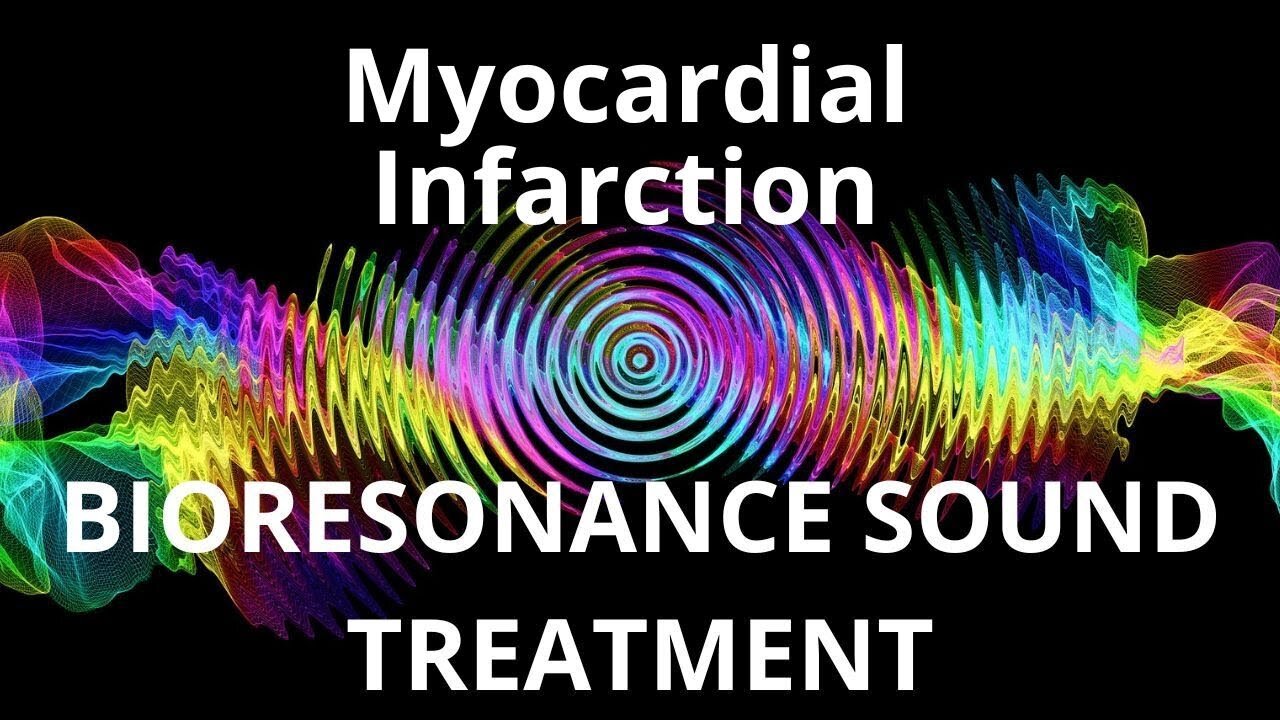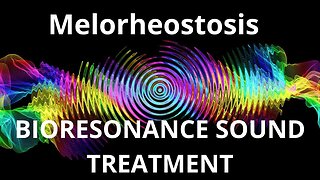Premium Only Content

Myocardial Infarction _ Sound therapy session _ Sounds of nature
#bioresonance#healing_energy#healing_frequencies
#Sounds_of_nature#sound_vibrations#sound_therapy
Myocardial infarction (MI), commonly known as a heart attack, is a life-threatening condition that occurs when blood flow to the heart is blocked, resulting in damage to the heart muscle. Conventional treatment for MI includes medications, such as aspirin and nitroglycerin, and medical procedures, such as angioplasty and bypass surgery. However, there is growing interest in using complementary and alternative therapies, such as resonant frequency sound therapy, to enhance the effectiveness of conventional treatments.
Resonant frequency sound therapy is a non-invasive treatment that uses sound waves to stimulate the body's natural healing processes. It involves playing specific frequencies that resonate with different parts of the body, including the heart and blood vessels. The theory behind this therapy is that each part of the body has a unique resonant frequency, and by playing these frequencies, the body can be brought back into balance, allowing for optimal health and healing.
In the case of MI, resonant frequency sound therapy can be used to help improve blood flow to the heart and promote healing of the damaged heart muscle. By playing frequencies that resonate with the heart and blood vessels, it is believed that this therapy can help reduce inflammation, promote relaxation, and enhance the effectiveness of conventional treatments.
One study conducted by researchers at the University of Arizona found that resonant frequency sound therapy reduced inflammation and improved heart function in patients with heart failure. The researchers noted that the therapy was safe and well-tolerated by patients and suggested that it could be used as an adjunctive treatment for heart failure.
Another study published in the Journal of Cardiovascular Electrophysiology found that resonant frequency sound therapy improved heart rate variability and reduced symptoms of anxiety in patients with arrhythmias. The researchers suggested that the therapy may work by reducing sympathetic nervous system activity and improving parasympathetic nervous system function.
While more research is needed to determine the exact mechanisms behind resonant frequency sound therapy, the evidence suggests that it may be a useful adjunctive treatment for MI. It is important to note that this therapy should not be used as a substitute for conventional treatments, but rather as a complementary therapy to enhance the effectiveness of existing treatments.
In addition to its potential benefits for MI, resonant frequency sound therapy has been shown to be effective for a range of other conditions, including chronic pain, anxiety, and depression. As such, it may be a useful tool for improving overall health and well-being.
In conclusion, resonant frequency sound therapy is a non-invasive, safe, and well-tolerated therapy that can be used as an adjunctive treatment for MI. While more research is needed to fully understand its effectiveness, the evidence suggests that it may help improve blood flow to the heart and promote healing of the damaged heart muscle, reducing the symptoms of MI and enhancing the effectiveness of conventional treatments. If you or a loved one is living with MI, it may be worth exploring resonant frequency sound therapy as a complementary therapy to help manage the condition.
TO ACHIEVE A POSITIVE RESULT, DAILY LISTENING TO VIDEOS IS REQUIRED.
I wish you health and prosperity!
You can purchase unique medicines in my store:
https://store11998180.company.site/
You have the opportunity to support the channel:
https://destream.net/live/RadSiarAl/donate
-
 30:00
30:00
BIORESONANCE SOUND THERAPY
19 days agoMelorheostosis _ Sound therapy session _ Sounds of nature
791 -
 32:15
32:15
DeVory Darkins
9 hours ago $5.01 earnedDemocrats PAINFULLY WRECKED by Tom Homan as paid protesters ERUPT in Chicago
6.75K34 -
 16:59
16:59
Degenerate Jay
13 hours ago $2.12 earnedIs Metal Gear Solid Delta: Snake Eater Worth Buying?
27.5K2 -
 4:26:28
4:26:28
Flex011
6 hours ago $0.16 earnedCronos: The New Dawn – Brutal Time-Travel Horror Survival
3.47K2 -
 33:11
33:11
The Finance Hub
17 hours ago $1.65 earnedBREAKING: JD VANCE JUST RELEASED A MASSIVE BOMBSHELL!!! OMG!!
7.97K23 -
 18:06
18:06
Professor Gerdes Explains 🇺🇦
16 hours agoAfter Major Attack, Trump Vows "Phase II" Sanctions on Russia
8.56K10 -
 5:24:59
5:24:59
EVASIVE_rabbi
6 hours ago✅️ 2 Dumb Navy Vets & A First Playthrough #Coop ✅️
4.28K1 -
 9:25:59
9:25:59
Cook14u
10 hours agoSeahawks Let Me Down, DO NOT Talk About How I Look 🤐🙃🥴
2.76K -
 8:18
8:18
MattMorseTV
16 hours ago $9.72 earned2.2 MILLION in ONE YEAR.
69.5K147 -
 LIVE
LIVE
TheKappaConvict
3 hours agoRainbow Six Siege X Lets send Em Packing Boys | The kappa Convict
8 watching